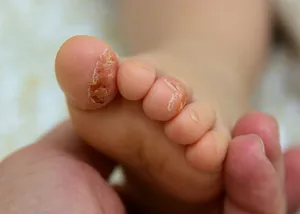
The study primarily focused on those at risk of eczema, a common skin condition experienced by one in five infants. During the study, researchers collected the results of different 21 studies, including 11,000 participants at risk for developing eczema (a mix of infants as well as pregnant and breastfeeding mothers). One study split the participants into two groups—giving the probiotic Lactobacillus rhapsodic GG (or Lactobacillus rhamnosus strain HN001) to the first group and a placebo to the other. In each case, the probiotic group developed about 50-percent fewer skin conditions compared to group given the placebo supplement.
However the same positive results were not found with other types of probiotics, and results were mixed compared to the success gleaned from Lactobacillus rhamnosus GG, a probiotic supplement that’s readily available over-the-counter, and in powdered or chewable form for kids.
“It is intriguing to learn that probiotics, which [are] only present inside the intestine, are able to remotely affect the skin,” says Negar Foolad, lead author of the study,”…I’m hoping researchers will continue to study these supplements to see if their findings can contribute to new therapeutic options for infants predisposed to eczema.”
Source: Reuters


